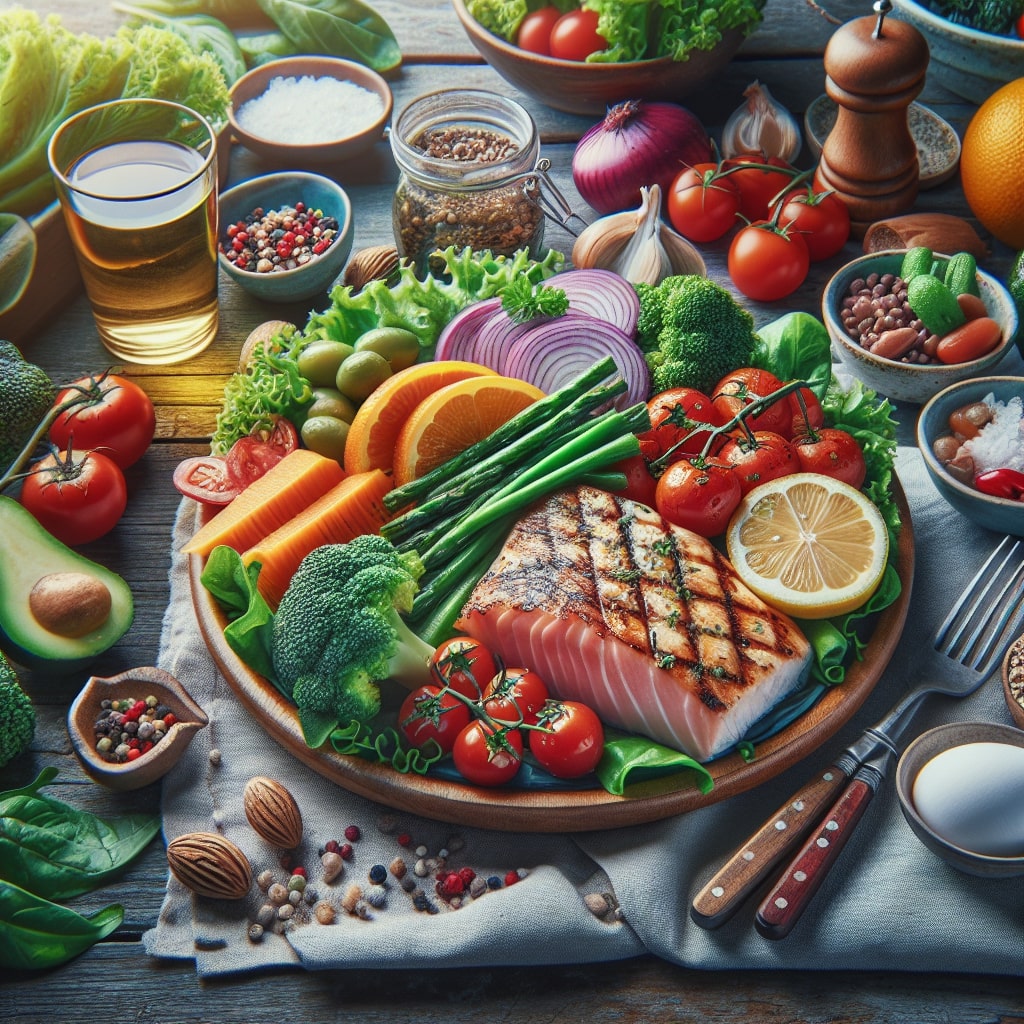Insulin Resistance: What is it and How to Get Rid of It?
Insulin resistance can lead to obesity, type 2 diabetes, and other dangerous diseases. In this article, you will learn about the risks and symptoms of insulin resistance and discover what you can do to prevent it.
Insulin resistance is a prediabetic condition. With the right approach, it can often be cured (read on to find out how).
Table of Contents:
What is Insulin Resistance?
Symptoms Causes Problems with Weight Loss
Insulin Resistance and Diabetes
Restoring Insulin Balance: 10 Tips
Sample 3-Day Meal Plan Against Insulin Resistance
What is Insulin Resistance?
Insulin resistance occurs when your cells stop responding properly to the hormone insulin. Insulin is one of the most important hormones in your body because it regulates blood sugar levels. You can think of insulin as a key that opens the gates of your cells, allowing sugars from the blood to enter the cells. When you eat something, especially something high in carbohydrates (like sugar), it causes a spike in your blood sugar levels. Your pancreas responds to this by producing the hormone insulin. Insulin allows your body to absorb energy, causing your blood sugar levels to drop to normal values. If your body no longer responds properly to insulin, you have insulin resistance. Your body then becomes somewhat "deaf" to insulin. In other words, your body becomes resistant to insulin.
This leads to the following problems:
Your cells are without fuel. Blood sugar levels are too high. Your pancreas produces extra insulin to "force" proper function, which leads to various vague ailments. It may happen that you do not immediately recognize insulin resistance. Below are the main symptoms of insulin resistance.

Symptoms of Insulin Resistance
Insulin resistance can be recognized by the following symptoms:
• Fatigue
• Feeling tired quickly
• Strong cravings for sweets
• A lot of fat around the abdomen (belly fat)
• Difficulty losing weight
• Intense thirst
• Frequent urination
If you recognize these symptoms in yourself, it may mean that you are insulin resistant. How to get rid of insulin resistance will be explained later in this article.
Below are the causes of insulin resistance.
It is important to know them to prevent insulin resistance.
Causes of Insulin Resistance
Insulin resistance does not appear suddenly; it develops slowly. It is usually associated with long-term unhealthy dietary and lifestyle habits.
The causes of insulin resistance can include:
• Chronic stress
• Medications
• Other medical reasons
• Unhealthy lifestyle
• Lack of physical activity
• Overweight
• Unhealthy diet with: - too many carbohydrates (especially sugar) or; - too little fiber
• A combination of various factors listed above
The most important causes of insulin resistance are still obesity, a large amount of belly fat, and an unhealthy diet. Especially consuming and/or drinking too many simple carbohydrates leads to insulin resistance.
Simple carbohydrates are found in sugar, pasta, bread, rice, cakes, sweet snacks, sweets, and other treats.
Below is a list of products containing simple carbohydrates. Regular consumption of these products can lead to insulin resistance.
• Sugar
• Sweets
• Cookies
• Chips
• Ice cream
• Sodas
• Fruit juices
• White bread
• White rice
• Pasta
• Couscous
• Wraps
• Meal mixes
• Ready-made sauces
Avoid these products to prevent the development of insulin resistance.

Insulin Resistance and Weight Loss
High insulin levels block fat burning. As a result, you gain weight faster, and losing excess weight becomes increasingly difficult. If you have insulin resistance, your blood sugar levels can rise to dangerously high values. Your body sees this as a life-threatening situation and is forced to produce even more insulin. This way, it "forces" the lowering of blood sugar levels. And you pay a high price for it... People with insulin resistance often have problems with overweight and stubborn belly fat, which increases the risk of type 2 diabetes.
Insulin Resistance and Diabetes
Insulin resistance is often a prediabetic condition. People with type 2 diabetes are insensitive to insulin. If you have diabetes, you must take medications to prevent serious damage to your body. Diabetes causes many inconveniences, and it is difficult to get rid of the medications. But there are also other risks that insulin resistance brings. Various diseases such as cancer, heart disease, high blood pressure, and high cholesterol can result from insulin resistance. My goal is not to scare you with this information. I just want to make you aware of the seriousness of the threat that insulin resistance poses. It's never too late to adopt a healthy lifestyle because fortunately, insulin resistance can be cured.
Treating Insulin Resistance: 10 Tips
The good news is that insulin resistance can be cured. These 10 tips also help you lose weight and burn fat. Apply them as much as possible for the best results and always consult your doctor if you suspect you have insulin resistance.
Tip 1: Get enough sleep. Lack of sleep can reduce your sensitivity to insulin, which is the beginning of insulin resistance and type 2 diabetes. Poor sleep quality also affects other hormones (such as ghrelin and growth hormone), making you hungrier and burning less fat. This, in turn, can lead to weight gain and obesity. So make sure you get 7-9 hours of sleep every night.
Tip 2: Say 'no' to bad carbohydrates. Sugar, sweets, cookies, chips, ice cream, cakes, white bread, white pasta, couscous, tortillas, ready-made meals, meal mixes, and sauces - contain bad, simple carbohydrates that cause blood sugar spikes. Take care of your body and eliminate these products from your diet.
Tip 3: Eat more fiber. Fiber causes sugars from food to be absorbed slowly into the blood. This way, you avoid blood sugar spikes.
Tip 4: Eat nuts and fatty fish. Nuts and fatty fish are the main sources of healthy fats.
Tip 5: Add cinnamon to dishes. Cinnamon increases sensitivity to insulin.
Tip 6: Eat berries. Studies show that berries can reduce the risk of insulin resistance.
Tip 7: Reduce stress. During stress, the stress hormone cortisol is produced, which releases sugars into the blood.
Tip 8: Get moving. Physical activity increases sensitivity to insulin.
Tip 9: Burn belly fat. Excess fat around the abdomen makes your body insensitive to insulin.
Tip 10: Start eating fewer carbohydrates. A low-carb diet is a good way to reverse insulin resistance.
Sample 3-Day Meal Plan Against Insulin Resistance






